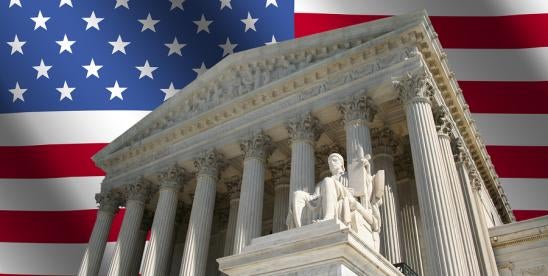Well it was a long day TCPAWorld but I promised you a breakdown of the Government’s big brief in the Facebook SCOTUS ATDS review today, and I am a Czar of my word.
The Fed’s brief is certainly more buttoned down than Facebook’s–it reads as typically austere G-Man prose– but it remains an incredibly persuasive brief that leaves a reader wondering how so many courts have gotten this so wrong for so long.
As with Facebook’s brief, the Government takes immediate and frequent issue with Duguid’s central proposition that the rules of grammar are properly disregarded in favor of “synesis.” While Facebook throttles the entire concept of synesis, the Government urges a comparatively muted sidestep of the issue. We are told at the outset:
Whatever the soundness of “synesis” as an interpretive tool, it appears to have little to do with this case.
That’s a far more respectful salvo than Facebook offered, and the supporting argument is quite different as well. The Government seeks to cabin “synesis” to circumstances where a statute contains a “subject-verb” disagreement. Plus the Government’s brief explains that “synesis” really only applies where common usage plainly tolerates a departure from the proper rules of grammar. Under ordinary circumstances, however, “matters of syntax are critical.”
The brief goes on to explain simply, dryly, but rather precisely why Duguid’s assumption that a device cannot dial prerecorded numbers without storage is incorrect, alleviating any supposed superfluage from the statute. The Government’s best–and fairly novel–argument is that the word “produce” should be read to mean “introduce” (as in to produce a witness in Court) such that “producing” numbers using a random or sequential number generator means supplying numbers– which can obviously and naturally (indeed must) be done with respect to numbers in storage. Pretty clever.
Here’s the concluding provision encapsulating the “produce” definitional flourish:
And if “produce” is understood to mean “bring forward,” rather than “create,” pp. 7-8, supra, the lack of redundancy becomes clearer still. On that understanding, a random or sequential number generator can be used to store numbers but not to pro-duce them if (for example) the number generator is used to compile a list from which a human operator later se-lects particular numbers to be dialed.
I like it.
As expected the Government also argued that the TCPA’s similarity to, but not quite mirror image of, state ATDS enactments cuts against Plaintiff’s position that Congress intended to cover the same technology. As I discussed in a previous blog–and with Plaintiff’s lead counsel Sergei Lemberg in our podcast– a clear link between California’s broad ADAD definition and the TCPA’s oh-so-similar-but-not-quite ATDS definition could have been absolutely dynamite. But Plaintiff couldn’t produce it. And the Government makes sure SCOTUS knows all about it:
In light of that obvious departure from the antecedent state-law regimes, Duguid is wrong to infer (Br. 15) that Congress used different words in Section 227(a)(1)(A) to “describe the same devices”… Congress enacted significantly different language, and this Court should not “revisit that choice.”
Predictable argument, but satisfying and well-stated nonetheless.
The brief goes on to deftly explain why a narrow interpretation of the TCPA’s ATDS definition is fully consistent with Congressional intent in creating the statute–focusing on the evils of random-fire dialers (prominently discussed in the legislative history) and the (broad) and separate sections of the TCPA addressing pre-recorded calls.
The Government tells the story very simply: Congress hated pre-recorded calls and random fire calls as shown by the legislative history and that is precisely what the TCPA regulates. Literally nothing in the statutory history shows a clear intention from Congress to regulate anything more. So there is no reason to overread the language of the statute to cover what Congress never expressly stated it was intending to cover to begin with.
I’ve got to tell you, the Government’s Reply brief lacks much of the flare of Facebook’s, but its “tell it simple and tell it true” approach really hits home.
The TCPAWorld.com probability dial (how bad of an idea were those BTW?) is currently at 85% here folks.
The Government’s brief is here: Feds Reply Brief In Duguid
This is a worthy read not just for TCPA aficionados, but also for students or young lawyers who want to see an example of lean, efficient brief writing that is also extremely persuasive, even with very little rhetorical flourish. If you can copy this style you’ll do well at any law firm, even as you develop a confident rhetorical style that is more “you” over time.
Really nice job by the SG’s office on this one.




 i
i


